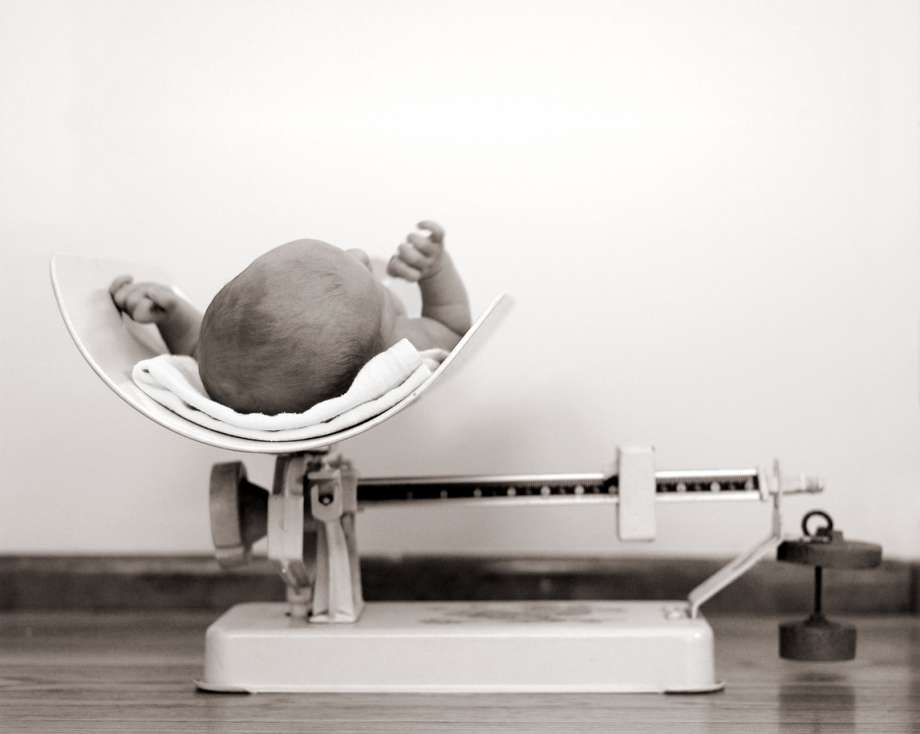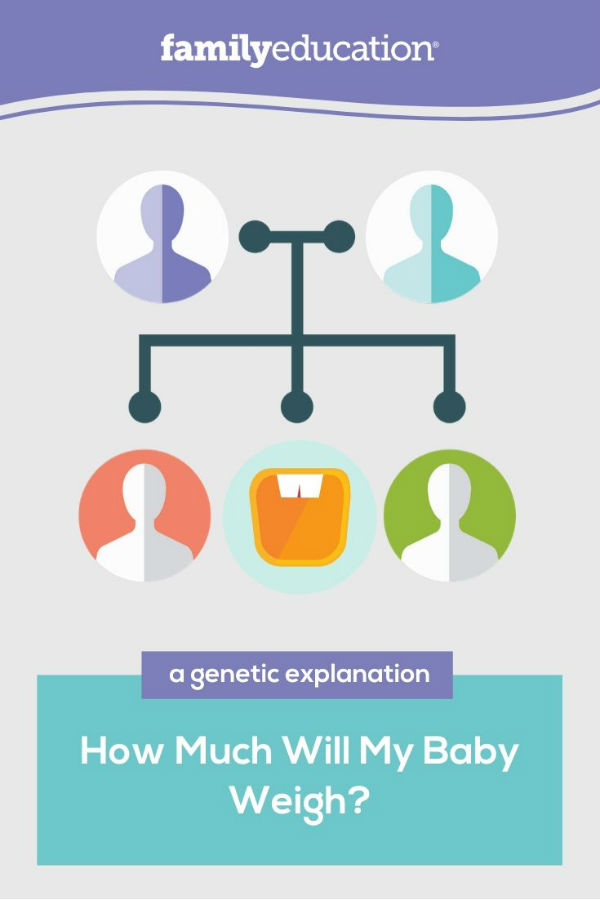How Much Will My Baby Weigh?

Can you predict your new arrival’s weight? There are a few clues that can help you guess. But there’s no way to fill in the weight on the birth announcement until the nurse places your bundle of joy onto the scale.
The average baby is born weighing 7 pounds 7 ounces, but anywhere from 5 pounds 8 ounces to 8 pounds 13 ounces can be considered healthy.
More: Will My Child Be Athletic? A Genetic Explanation
Most newborns come into the world weighing somewhere between 5 pounds 11 ounces to 8 pounds 6 ounces. Less than 5 pounds 8 ounces is considered low birth weight. Larger than average is over 8 pounds 13 ounces.
As a member of the FamilyEducation Expert Panel, I offer my expertise in genetics. Today I will help you understand how a baby’s weight at birth is determined.
These are the factors that can impact your baby’s birth weight:
A baby’s weight at birth is impacted by several things, many of which are out of our control. Whether genetics or happenstance, some babies are born larger or smaller.
How Gestational Age Affects Birth Weight
Gestational age at birth is one of the biggest indicators of birthweight. A baby born on his due date is going to be closer to average weight. He will be smaller if he is born earlier and larger if he is born later. Babies continue to grow whether they are in the uterus or out in the world.
A baby is considered early if she makes her arrival before her due date. If she is born before 37 weeks gestation (over three weeks early), she is considered premature. The earlier a baby is born, the smaller she will be.
A baby who is born after her due date is going to weigh more. Usually, babies do not come more than a few days late. At 42 weeks gestation (two weeks late), she is considered post-term. If a woman has not gone into labor a week after her due date, she will normally be induced to avoid complications.
How Family History Affects Birth Weight
Genetics plays a role in how much your baby will weigh. There are two ways that inherited factors contribute.
First, a family history of babies being born small could mean that your baby will be born small. The same goes for a family history of babies being born large.
Next, if the people in your family or your partner’s family tend to be tall or meaty, you might birth a large baby. If either of your families are full of slim or petite people, that could mean that your baby will be born tiny.
Don’t be so fast to assume you’ll have a big baby just because you are 5’11. Heredity does make its mark on birth weight, but not to the same extent as gestational age.
Don't have time to read now? Pin it for later:

The Role of Gender in Birth Weight
Baby boys are born larger than baby girls, on average. So if you know your baby’s gender, you have a clue about their birth weight.
As a rule, boys are larger than girls. This proves true on average for almost every age. The only exception is the onset of female puberty. Girls mature first, so their growth spurt kicks in a couple of years before boys’ do.
Multiples Weigh Less at Birth
If you are expecting twins, they are most likely going to be born smaller than average. The same goes for triplets and higher groupings.
To put it simply, two babies take up more space than one. Your womb has a limited capacity. Twins have limited growth potential before they are born.
For this reason, a woman expecting twins will go into labor sooner. Her babies need to be born so that they can continue growing.
Preventable Factors in Low or High Birth Weight
Making healthy choices during pregnancy will help ensure that your baby is not born too small or too large. Smoking during pregnancy increases the risk of a low birth weight baby, as does malnutrition.
Gestational diabetes or otherwise gaining excessive weight during pregnancy increases the risk of a baby being born larger than normal.
When it comes down to it, gestational age at birth is the most compelling indicator of a baby’s birth weight. Unless you have a planned induction or C-section, you can’t predict when you will deliver. The most important thing is whether your baby is healthy, and you can help ensure this by keeping yourself healthy.
Weight is actually impacted by gestational age at birth for quite a while. You may not see your little one hit a growth curve that makes sense for his genetics until close to eighteen months. For the most part, as long as an infant grows along a curve, she is on track (but of course, always check with your doctor).
Curious about what your baby will look like? Use this genetic explanation to determine what color hair your baby will have.

